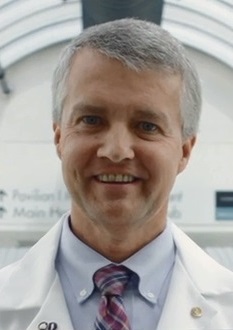As Health Care Becomes More Fragmented, Family Doctors Take the Reins
 “For someone who has complex health needs, it’s very easy to get lost in today’s health care system,” said William J. Warning II, M.D., director of the Crozer Health Family Practice Residency Program. “With each referral, you become another degree removed from your primary care physician. Without a clear diagnosis, how are you supposed to know where to turn next?”
“For someone who has complex health needs, it’s very easy to get lost in today’s health care system,” said William J. Warning II, M.D., director of the Crozer Health Family Practice Residency Program. “With each referral, you become another degree removed from your primary care physician. Without a clear diagnosis, how are you supposed to know where to turn next?”
The answer, Dr. Warning said, is a concept called the Patient-Centered Medical Home (PCMH). Under this model, the patient’s primary care physician also becomes their health care coordinator, scheduling appointments—and interacting—with medical, behavioral health, and social services specialists, many of whom are part of the same practice.
Dr. Warning has practiced the PCMH model throughout his 30-year career. In 2008, it became an accredited process through the National Committee for Quality Assurance. Crozer Health’s Family Practice Residency Program was the first training program in the country to earn the accreditation.
Within just a couple of years, all 35 family practices in the Crozer Health followed suit. Today, every practice holds the highest level of accreditation.
The PCMH model emphasizes team-based care, communication, and coordination. It’s been shown to improve access to care, help better manage patients’ chronic conditions, and improve the patient experience —all while lowering the cost of care.
It’s also improving satisfaction levels among their health care providers. “I like to know what’s going on with my patients,” Dr. Warning said. “If coordinating their care also improves efficiency, all the better.”
